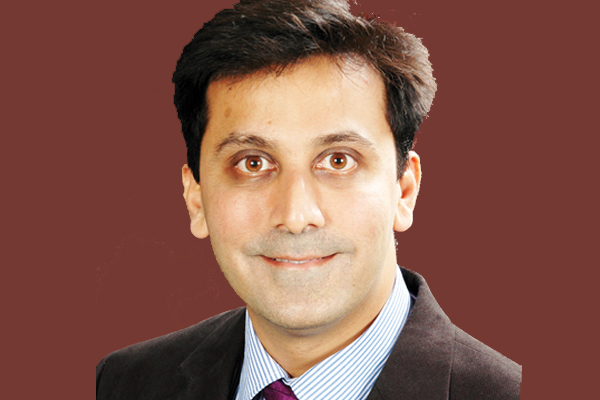

COO and Co-Founder, Cellworks Research India Pvt Ltd
One of the great challenges in cancer is identifying who will be cured by a treatment and who will suffer from cancer relapse. This has driven to todays personalised cancer care of computer modelling of genomic testing data, says Taher Abbasi, COO and Co-Founder, Cellworks Research India Pvt Ltd in conversation with Vivek Ratnakar of Elets News Network (ENN).
Why personalised cancer treatment is so important? What are the inherent advantages?

The treatment decisions without precision medicine are based on one-size-fits-all guidelines with low response rates. With precision medicine driven personalisation, treatment decisions are influenced by understanding the relevant genomic characteristics of the patients. The rapid identification of the right therapy would benefit the patient in the best possible manner. If efficacious treatment can be delivered earlier in the disease progression, it mitigates unwarranted side-effects.
Please apprise us on the evolution of personalised cancer care.
In the last one decade, the cost and time for testing gene abnormalities have dramatically reduced. Recently, there has been mainstream clinical access to DNA sequencing to understand the gene misspellings for a patient. This is allowing cancer doctors to use genomics medicine testing as a way to better understand their patients cancer.

However, one of the greatest challenges with cancer genetic information understands it. The average cancer contains hundreds of gene misspellings. It is impossible for the human brain to map this high number of abnormalities and their interactions. More importantly for the cancer patient, it is impossible for the human brain to consider the impact of hundreds of drugs on these hundreds of gene mutations.
This has driven to todays personalised cancer care of computer modelling of genomic testing data.
What is the scope of precision medicine in India?
There are significant differences in genomics or attributes of cancer patients across geographies. The implication of this is that therapies developed and tested in other countries could have different response rates in Indian patients. Indian Council of Medical Research projects over 1.7 million new cancer cases per year. Genomics medicine diagnostics to measure local population specific tumour genomic attributes is available. Hence, a big need and scope for deploying and adopting precision medicine in India.
Please share with us some latest trends in research and development in this field — both in India and across the world.
The latest developments in the area of precision medicine are treatment personalisation and disease monitoring. The idea is to predict response to a therapy enabling personalisation. This is done by taking into account the patient gene misspellings obtained from genomic medicine. Disease monitoring supports treatment personalisation and adaptation by early detection and tracking disease response to treatment. This closed loop of treatment personalisation and monitoring is the new precision medicine paradigm.
 How does understanding of cell biology help doctors in providing personalised cancer care to patients?
How does understanding of cell biology help doctors in providing personalised cancer care to patients?
One of the biggest challenges in cancer is identifying who will be cured by a treatment and who will suffer from cancer relapse. In cancer, there are misspellings or mutations in important genes that drive the cell to grow out of control and eventually move around the body.
Different patients have different misspellings and hence do not benefit from same treatment. The average cancer contains hundreds of gene mutations. Using computers to understand the unique cell biology of a patient by interpreting the high number of gene misspellings and their interactions help doctors uate efficacy impact of thousands of treatment permutations.
ONE OF THE GREAT CHALLENGES IN CANCER IS IDENTIFYING WHO WILL BE CURED BY A TREATMENT AND WHO WILL SUFFER FROM CANCER RELAPSE. IN CANCER, THERE ARE MISSPELLINGS OR MUTATIONS IN IMPORTANT GENES THAT DRIVE THE CELL TO GROW OUT OF CONTROL AND EVENTUALLY MOVE AROUND THE BODY.
Which healthcare facilities in India you think are well equipped with providing personalized care to treat cancer sub-types?
Access to genomics medicine diagnostics and precision medicine platforms are available across all major health institutions in India.
How costly is personalised cancer treatment?
The human and economic cost of not selecting the right cancer treatment for a patient is very large. Typical response rates of drug agents is 30 per cent or less, implying more than 7 out of 10 patients would get a treatment which is expensive and toxic but would not work. The rapid identification of the right therapy and using precision medicine treatments offers health economic benefits.
Be a part of Elets Collaborative Initiatives. Join Us for Upcoming Events and explore business opportunities. Like us on Facebook , connect with us on LinkedIn and follow us on Twitter , Instagram.












